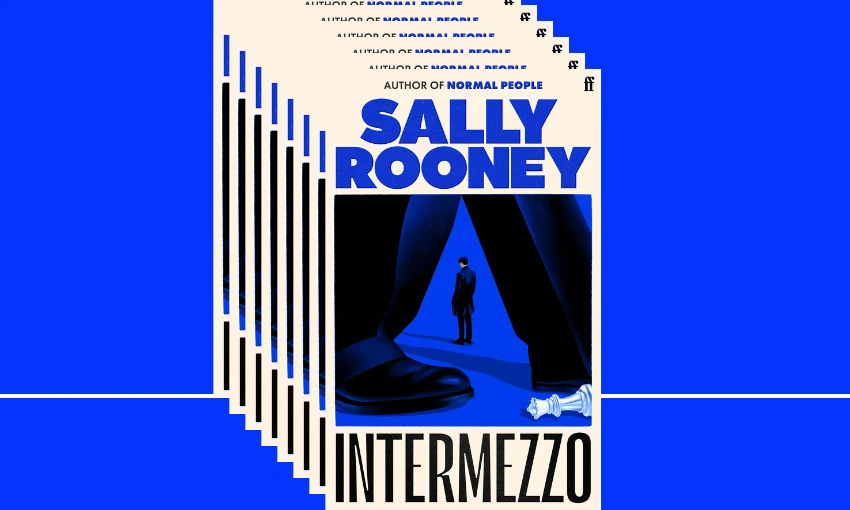Is the end of 'wfh' what Wellington needs?
Public servants have been ordered back to the office, but the government doesn't know how many are already there.
Mōrena, and welcome to The Bulletin for Tuesday, September 24.
In today’s edition: The trial that gripped the nation ends with a ‘not guilty’, should we move to a four-year parliamentary term, and why the coalition is at odds on how to resolve our ferry crisis. But first, the days of sending a “wfh” message to your work chat are numbered.
‘Wfh’ not an ‘entitlement’
The days of choosing to “wfh” are coming to an end – for the public sector anyway. What started as a requirement during the Covid-19 pandemic later evolved into “the new normal” for many people, a hybrid way of working that took into account not everybody was suited to a traditional 9-5 with a commute. It probably could have just been an email, but as Stuff’s Glenn McConnell reported, the public sector minister Nicola Willis chose yesterday’s post-cabinet press conference to announce a new directive for staff, saying that working from home isn’t an “entitlement”.
Updated guidance will be issued by the public service commissioner on the government’s orders to make it clear that working from home provisions must be “agreed and monitored”. The Post’s Luke Malpass wrote that the most “amusing and also concerning” thing about the announcement was that the government doesn’t really know how many people do work from home, nor how often or what days. Nevertheless, the message was clear: get back to the office.
Who is responsible?
It’s been more than a decade since former prime minister John Key claimed (and then denied) that Wellington was a “dying” city. Those words have continued to haunt the capital, though Key later clarified Wellington was under “sustained pressure”. The Covid-19 pandemic cemented this. Like the rest of the country, the city came to a halt. But even after lockdown restrictions eased, it felt like Wellington workers were reluctant to head back to the office. Then the coalition government announced it would be slashing the number of public servants – most of whom are in the capital – as part of cost-cutting measures. Wellington central MP Tamatha Paul said the government was “tanking” the city.
Duane Leo from the Public Service Association told RNZ’s Checkpoint that yesterday’s announcement was a response to a problem the government had created. “If this government really cared about the Wellington economy, then it wouldn't have cut thousands of hardworking public servants' jobs,” Leo said. The opposition, reported RNZ’s Lilian Hanly, had similar thoughts. Acting Labour leader Carmel Sepuloni said the government was “demonising public servants” after 6,000 of them had already lost their jobs.
Will workers in the office save Wellington?
Nicola Willis said that choosing not to come to your physical place of work had an impact on your team and the “wider community”. The prime minister agreed, adding that he did not want to see working from home “undermining that ambition that we have”. They denied the new directive was a reaction to calls from local hospitality businesses for support, though it has been welcomed.
As noted by Dan Brunskill at Interest, the government’s decision to clamp down on working from home did come after two articles published over the weekend that raised concerns a lack of workers in the Wellington CBD was harming businesses. In the Herald on Sunday (paywalled), Newstalk ZB host Heather du Plessis-Allan suggested public servants were using wfh time to create four day weekends at their beach houses. Stuff’s Annemarie Quill – in a piece since updated to include the government’s announcement – spoke to Wellington business owners desperate for more foot traffic. “They might not be spending the money they used to – but its people that will make Wellington buzz again,” said one.
After the announcement yesterday, Epic Hospitality owner Greig Wilson told The Post that Wellington was “on its knees”. He had been celebrating the government’s announcement. “All we’ve done this year is cut costs and reduce staff, so this can only be good for the Wellington economy and good for New Zealand.”
We’re not alone
New Zealand isn’t alone in grappling with what to do about flexible working. As noted by Luke Malpass in his piece this morning, the New South Wales government recently made a similar demand of its public sector. Big businesses like Amazon have begun ordering workers to return to the office, leading the charge against flexible working arrangements.
But on the flipside, in the UK, where Labour leader Chris Hipkins has been spending time on a policy trip, the government is hoping to pass a package of workers’ rights measures. It would include provisions to encourage flexible working where possible.
Business secretary Jonathan Reynolds argued that flexible working contributed to productivity, resilience and encouraged staffers to stay working for an employer. “Good employers understand that their workforce, to keep them motivated and resilient, they do need to judge people on outcomes and not a culture of presenteeism,” he said. UK data showed 27% of people took advantage of hybrid work – an increase – though just 13% were still just working from home.
Join The Spinoff Members
"Happy to be alive, proud to be a member. Keep up the good work." - Neera, Spinoff member.
If you value our work and want to support us, please consider becoming a member today. Already a member? Thank you!
MPs want a four-year term. Should we give it to them?
The Spinoff’s Toby Manhire argues with himself this morning over the pros and cons of a possible four-year parliamentary term. Last week, prime minister Christopher Luxon signalled that the issue could be on the agenda in time for the 2026 election. Any change to the term would depend on the outcome of a referendum. But as Manhire notes, it wouldn’t be the first time the public has had a chance to vote on a longer term – both previous referenda failed, most recently in 1990.
Manhire writes:
A report five years ago by the Victoria University of Wellington Institute for Governance and Policy Studies made a compelling case for a four-year term. Of 190 countries with parliaments, it counted 103 with five-year terms, 74 with four-year terms, and only nine, New Zealand included, that go back to vote every three years. Many of the democracies we most often point to enviously, such as Finland, are four-year cycles.
‘Not guilty’ verdict after eight week trial of Philip Polkinghorne
After eight weeks, the criminal trial that gripped the nation has ended with a not guilty verdict. The jury concluded that Auckland eye surgeon Philip Polkinghorne did not murder his wife, Pauline Hanna. As The Post’s Amelia Wade writes, it wasn’t the alleged crime that ensured the trial routinely appeared on the front page of national news sites, but the details: “murder, meth, high society and sex workers”.
The Spinoff’s Lyric Waiwiri-Smith was at the High Court as the verdict was revealed and the media circus came to a close. She writes:
It was a hush, then a weeping when the verdict was called. Those in the court at the time say the eye surgeon was stone-faced as his innocence was announced, and the emotions washed over the public seats where the families sat like a “whoosh”. There were tears from both families in a moment that seemed to catch many off guard – it all seemed to happen so fast.
Polkinghorne will return to court later in the year for sentencing over methamphetamine possession charges.
More reading:
Sex worker Madison Ashton breaks her silence, reveals the verdict she was “praying for”. (Stuff’s Paula Penfold and Edward Gay)
When Polkinghorne told me the tide had turned in his favour. (The Herald’s Steve Braunias, paywalled)
Listen: More cuts at TVNZ, more growth at RNZ
On the latest episode of The Fold: Glen Kyne returns to join host Duncan Greive to discuss a pair of different stories which seem to head to the same conclusion. The first is Shayne Currie’s report on a leaked email from TVNZ CEO Jodi O’Donnell flagging more cuts at the broadcaster, potentially at 1news.co.nz. The second is a Newsroom story about fast-rising ratings at RNZ’s website.
Click and Collect
The three coalition parties disagree on a solution to the ferry crisis, reports Tova O’Brien.
I enjoyed this piece by Stuff’s Glenn McConnell looking at the Melling railway line in Wellington which, he argues, “says a lot about the predicament the region is now in”.
Foreign minister Winston Peters is heading to the United Nations in New York. What might we hear from him?
“Inconvenient truths” stall the naming of PM’s science chief. (Newsroom Pro, paywalled)
A man died after a nurse put the wrong symptom into Healthline’s clinical support tool.
Rebecca K Reilly reviews new Sally Rooney book Intermezzo. Lyric Waiwiri-Smith goes to watch businessman Christopher Luxon talk business to business people. Lucinda Bennett considers the benefits of eating unpopular fish. Simon Percival debunks some capital gains tax myths. Gabi Lardies explains why the fight over Israeli brand Obela in New Zealand is just getting started. Here's all the new movies and TV shows on streaming services this week.
That’s it for this morning, thanks for reading. I’ll catch you back tomorrow.
Want to get in touch? Join the conversation in the Substack comments section or via email at thebulletin@thespinoff.co.nz if you have any feedback on today’s top stories (or anything else in the news).
If you liked what you read today, share The Bulletin with friends, family and colleagues.















The irony is, WFH is mostly agreed and monitored already, on a mostly voluntary basis. When booking meetings with people or teams, you need to know whether it's going to be in person or online, and whether to book a room. So what do they think is going on? No idea of reality.
The last time we voted on a 4 year term, there was also a vote on the number of parliamentarians.
We voted strongly for 100 or less, funny how that did not happen.